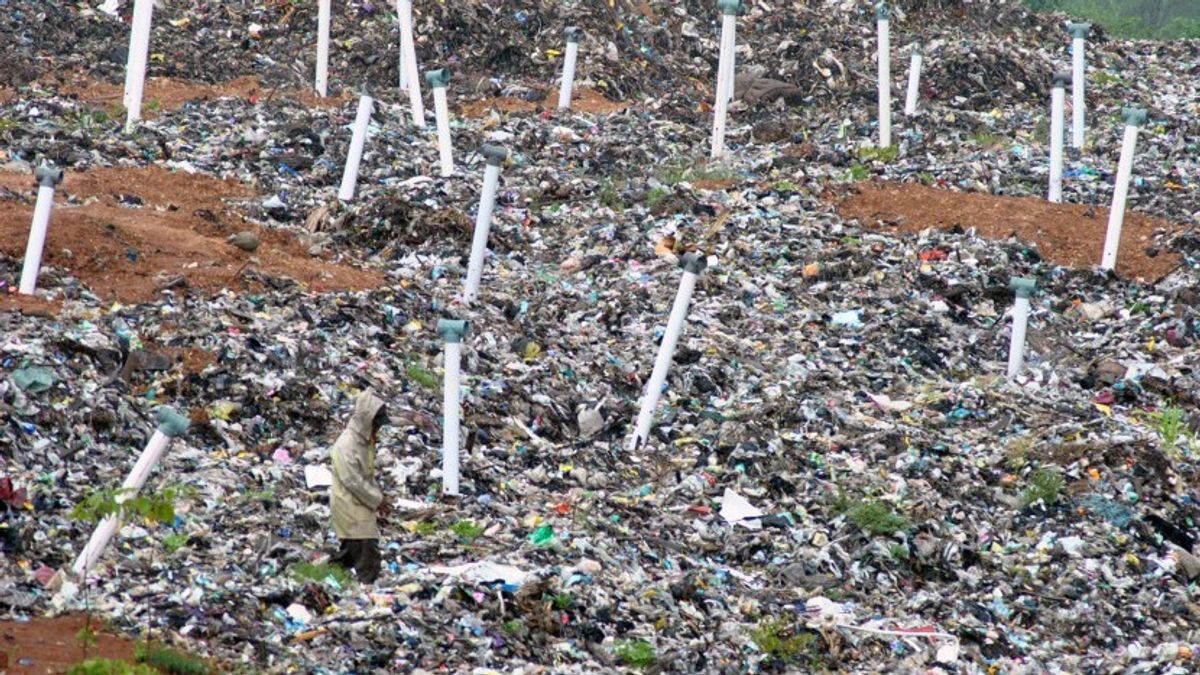YOGYAKARTA - The Yogyakarta City Government (Pemkot) ensures that the inorganic waste zero rule is enforced starting in early January 2023. This rule regulates that people are no longer allowed to dispose of inorganic waste but must manage independently or through a waste bank.
"The effective rules will take effect from January 1, 2023. We can no longer dispose of inorganic waste," said Acting Mayor of Yogyakarta Sumadi, Wednesday, December 14, as quoted by Antara.
The inorganic waste zero rule is contained in the Circular Letter of the Mayor of Yogyakarta Number 660/6123/SE/2022 concerning the Inorganic Waste Zero Movement.
He explained that the government had sent the circulars to all sub-districts, sub-districts, to RT/RW to be socialized to the public so that residents understood the applicable rules.
"There is still about two weeks to socialize the regulation. Socialization must be carried out intensively and massively. All must move to carry out the socialization," he said.
In order to anticipate various obstacles that may arise related to the regulation, Sumadi said he would place officers from the Satpol PP to guard 13 garbage depots.
If there are still people who throw garbage apart from organic waste, then the garbage must be brought home again.
"You can't throw it away, you have to take it home again. Indeed, this rule is a little coercive. But it must be done so that there are no waste problems in Yogyakarta," he said.
Sumadi hopes that the inorganic waste zero movement can be carried out optimally so that it can overcome the technical age of the Piyungan Final Disposal Site (TPA) which is getting shorter, it is estimated that it will end in April 2023 if it is not accompanied by any effort.
The movement is expected to become a new habit and culture in society because public awareness to manage waste already exists.
"There are already quite a lot of waste banks and there are also education through schools and villages. Hopefully, the movement will run well," he said.
Head of the Yogyakarta City Environment Agency (DLH) Sugeng Darmanto said the number of waste banks had increased and until December this year there were 575 units.
The number of waste banks in the community is increasing. The hope is that it can support inorganic waste management efforts," he said.
Director of the Bank of Waste Gumregah Yogyakarta Yohannes de Britto Basuki supports the issuance of the SE Anorganic Waste Zero Movement because it will help waste banks to encourage people to manage waste from households.
"We actually have often done socialization of waste management. But previously there was no legal basis whatsoever, but now there is an SE so that socialization can be done more easily," he said.
A number of waste management activities that have been carried out by Gumregah Waste Bank will continue to be intensified, such as inorganic waste management which is then sold to collectors, making ecoenzyme, handicrafts from inorganic waste, biopores, and later developed for organic waste management using maggots.
"These various waste management methods must be introduced to the public because the conditions of society in our environment are very diverse and urban," he said.
The introduction of various waste management methods is expected to be a real practice for the community so that residents can choose to manage waste according to their respective conditions.
The English, Chinese, Japanese, Arabic, and French versions are automatically generated by the AI. So there may still be inaccuracies in translating, please always see Indonesian as our main language. (system supported by DigitalSiber.id)










